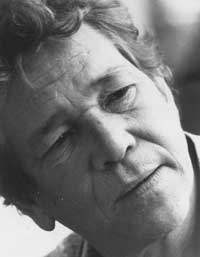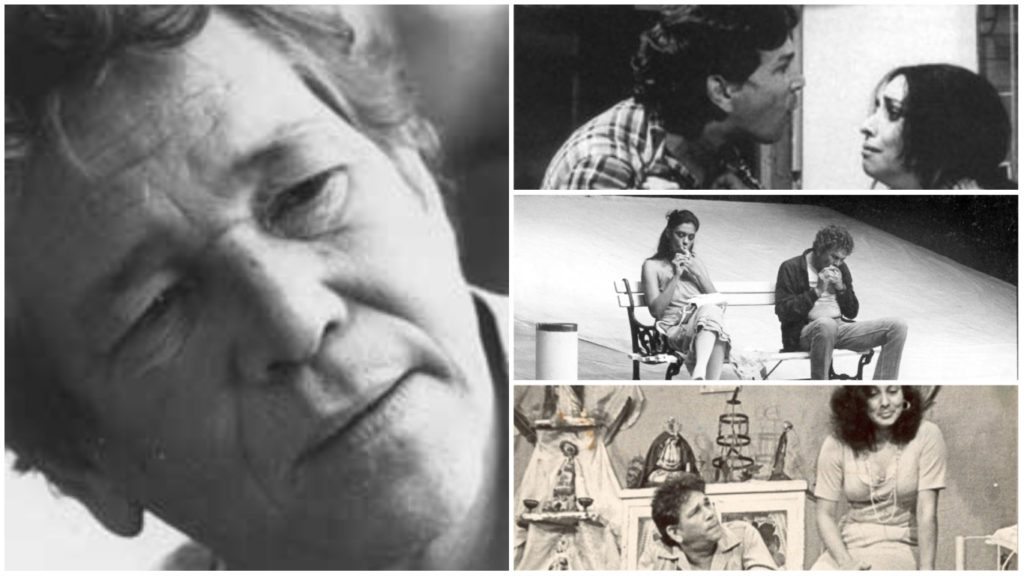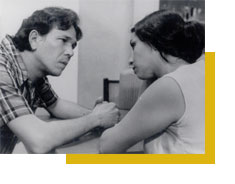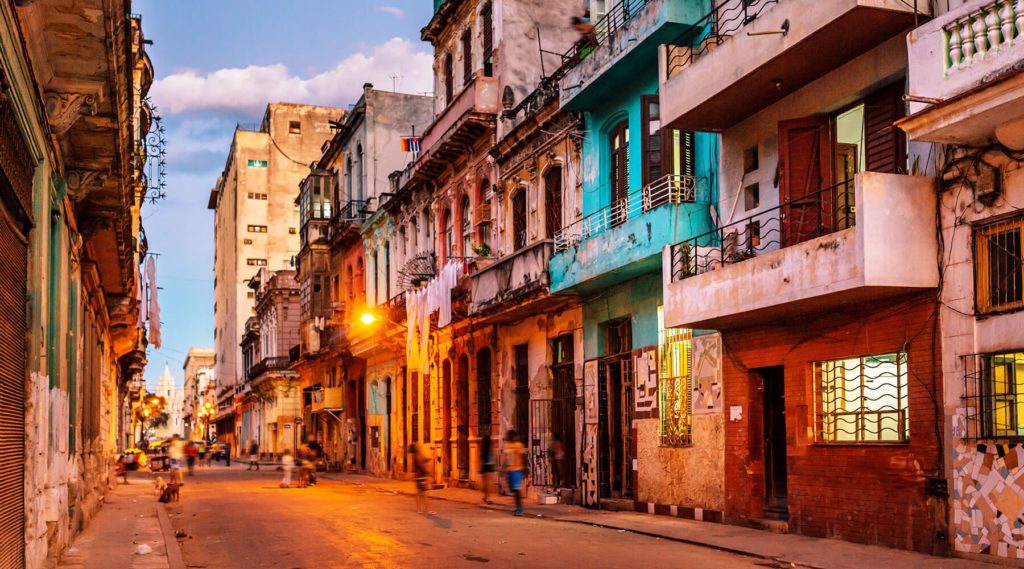 ACTOR ADOLFO LLAURADÓ IN MEMORIAM. VIDEOS.
ACTOR ADOLFO LLAURADÓ IN MEMORIAM. VIDEOS.
Although he would become one of the most demanded Cuban actors in important films and plays, Adolfo Llauradó began his career with modesty, on radio stations from his native Santiago de Cuba in the mid-fifties. In 1956 he moved to the capital, and continued to make radio and television, although since then he was linked, forever, with the theater. First he was part of the National Dramatic Ensemble and later of the Teatro Estudio company, to which he belonged for several years.
In Teatro Estudio he established himself as one of the best actors in the country. His performances are especially remembered, directed by Vicente Revuelta (José Triana’s Night of the Murderers, Bertold Brecht’s El alma buena, Anton Chekhov’s The Three Sisters, William Shakespeare’s Twelfth Night) and Berta Martínez (Santa Juana, by Bernard Shaw; Bodas de sangre, by Federico García Lorca).
Although he already had twenty years of career, the great prizes for his theatrical performances came in the eighties, mainly in 1984 by Santa Camila of Old Havana and Die of the story, and in 1987 by En el Parque. His broad theatrical curriculum concluded with Dos viejos pánicos, by Virgilio Piñera, in 1996.
For the cinema, his first notable performances were for Humberto Solás, who placed him as a couple of the then debutante Adela Legrá, first in the medium-length Manuela (1966), and then in the consecrating role of Lucia’s third story, where the attitudes of the character demonstrated the ability of the actor to interpret the paradigm of the national machista.
Ten years later, Adolfo once again interpreted this archetype of the Cuban male, discriminating and arrogant, in Portrait of Teresa (1978) with Daisy Granados, with which he established an endearing friendship. Both were fortunate to meet again in several films, mainly from Pastor Vega (Habanera, Love in minefield, Amanda’s prophecies) but also from other directors: A very old man with huge wings and The elephant and the bicycle.
Between 1973 and 1976 he played three memorable villains, which are among the best in Cuban cinema: El hombre de Maisinicú, directed by Manuel Pérez; The other Francisco, Sergio Giral (a role for which he had to fatten a lot) and Rancheador, Sergio Giral. They also impacted their participation in The first load to the machete, The days of water, Maluala and Red powder, the latter in a memorable positive character.
In his last years he acted in several short films produced by students of the International School of Film and Television of Cuba in San Antonio de los Baños, and directed three documentaries: Carilda, disappear the dust (1994, about the famous poetess Matancera); Divas (1995), and Esmeralda (2000, about a 78-year-old woman who was a prostitute).
He died on November 3, 2001, in Havana, his body was moved and buried in his hometown Santiago de Cuba. He was preparing to be the protagonist of a film by Pastor Vega, Resurrección. In March 2003, the Teatro Teatro Adolfo Llauradó was inaugurated in Havana, in recognition of its contributions to Cuban culture.
 ACTOR ADOLFO LLAURADÓ IN MEMORIAM. VIDEOS.
ACTOR ADOLFO LLAURADÓ IN MEMORIAM. VIDEOS.
Si bien llegaría a ser uno de los actores cubanos más reclamados en importantes filmes y obras de teatro, Adolfo Llauradó comenzó su carrera con toda modestia, en radioemisoras de su natal Santiago de Cuba a mediados de los años cincuenta. En 1956 se traslada a la capital, y continuó haciendo radio y televisión, aunque desde entonces se vinculó, para siempre, con el teatro. Primero formó parte del Conjunto Dramático Nacional y posteriormente de la compañía Teatro Estudio, a la que perteneció durante varios años.
En Teatro Estudio se consagró como uno de los mejores actores del país. Se recuerdan sobre todo sus interpretaciones dirigido por Vicente Revuelta (La noche de los asesinos, de José Triana; El alma buena, de Bertold Brecht; Las tres hermanas, de Anton Chejov; La duodécima noche, de William Shakespeare) y Berta Martínez (Santa Juana, de Bernard Shaw; Bodas de sangre, de Federico García Lorca).
Aunque ya contaba con veinte años de carrera, los grandes premios por sus actuaciones teatrales llegaron en los años ochenta, principalmente en 1984 por Santa Camila de la Habana Vieja y Morir del cuento, y en 1987 por En el Parque. Su amplio currículo teatral concluyó con Dos viejos pánicos, de Virgilio Piñera, en 1996.
https://youtu.be/SRpYBIIG-d4
Para el cine, sus primeras actuaciones notables fueron para Humberto Solás, quien lo colocó como pareja de la entonces debutante Adela Legrá, primero en el mediometraje Manuela (1966), y luego en el consagratorio papel del tercer cuento de Lucía, donde las actitudes del personaje demostraron la capacidad del actor para interpretar el paradigma del machista nacional.
Diez años después, Adolfo volvió a interpretar como nadie este arquetipo del macho cubano, discriminador y prepotente, en Retrato de Teresa (1978) junto a Daisy Granados , con la cual estableció una entrañable amistad. Ambos tuvieron la suerte de reencontrarse en varios filmes, principalmente de Pastor Vega (Habanera, Amor en campo minado, Las profecías de Amanda) pero también de otros directores: Un señor muy viejo con unas alas enormes y El elefante y la bicicleta.
Entre 1973 y 1976 interpretó tres memorables malvados, que se cuentan entre los mejores del cine cubano: El hombre de Maisinicú, dirigido por Manuel Pérez; El otro Francisco, de Sergio Giral (un papel para el cual tuvo que engordar muchísimo) y Rancheador, de Sergio Giral. También impactaron sus participaciones en La primera carga al machete, Los días del agua, Maluala y Polvo rojo, este último en un memorable personaje positivo.
En sus últimos tiempos actuó en diversos cortometrajes producidos por alumnos de la Escuela Internacional de Cine y Televisión de Cuba en San Antonio de los Baños, y dirigió tres documentales: Carilda, desaparece el polvo (1994, sobre la famosa poetisa matancera); Divas (1995), y Esmeralda (2000, sobre una mujer de 78 años que fue prostituta).
https://youtu.be/53E9Re0jmjI
Llaurado falleció el 3 de noviembre de 2001, en la Habana, su cuerpo fue trasladado y enterrado en su ciudad natal Santiago de Cuba. Se preparaba para ser el protagonista de un filme de Pastor Vega, Resurrección. En marzo de 2003 fue inaugurada en La Habana la Sala Teatro Adolfo Llauradó, en reconocimiento a sus aportes a la cultura cubana.
Agencies/CiberCuba/Joel del Río, La Habana/ Internet Photos/ YouTube/ TheCubanHistory.com
THE CUBAN HISTORY, HOLLYWOOD.






